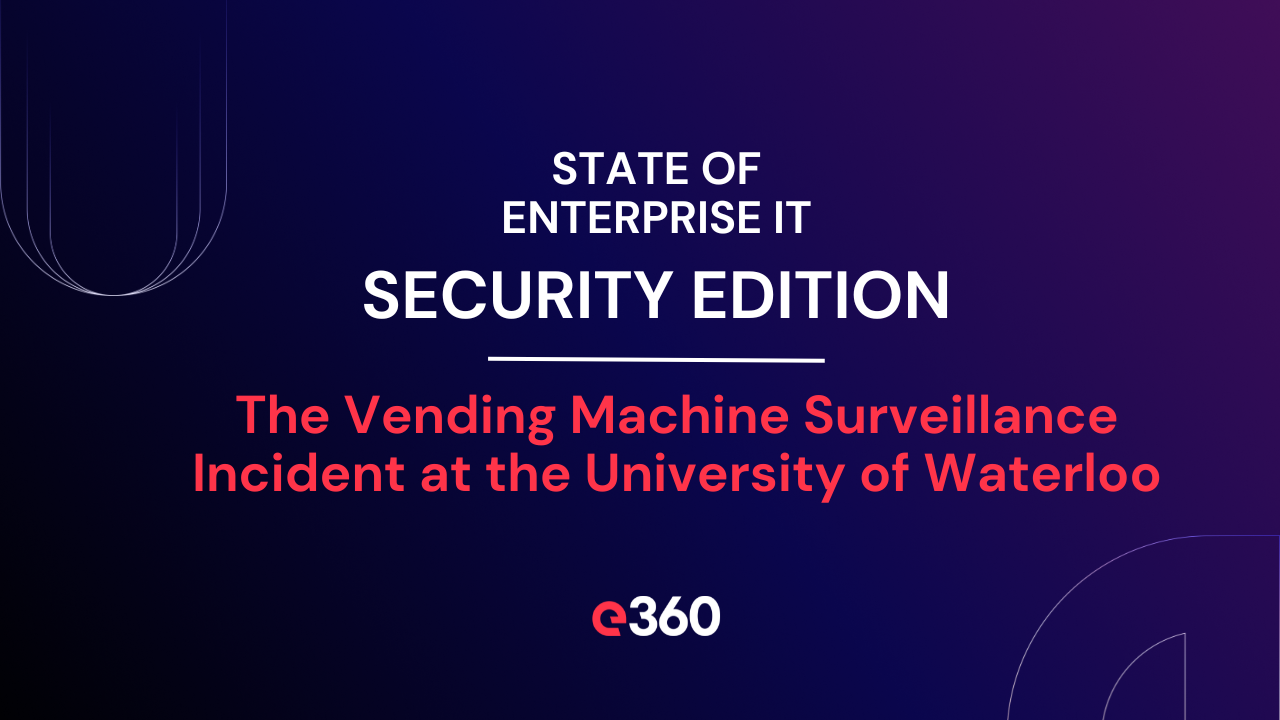Brad Bussie, the Chief Information Security Officer at e360, in episode ten of the State of Enterprise IT Security Edition, covers a fascinating story that highlights the ever-blurring lines between technology, privacy, and security. This incident involves a seemingly ordinary vending machine at the University of Waterloo, which unexpectedly became the center of a privacy controversy.
The Incident Unfolds
"A vending machine error reveals a secret face image database of college students," Bussie begins, setting the stage for a discussion that transcends a simple malfunction. This M&M branded smart vending machine, equipped by Invenda, displayed an error message indicating a facial recognition application exception. Captured and shared on Reddit, this message sparked widespread curiosity and concern: "Why does a vending machine need facial recognition software?"
Facial Analysis vs. Facial Recognition
Invenda's response to the ensuing inquiries was pivotal in distinguishing between facial recognition and facial analysis. "The data is not in fact, facial recognition, it is facial analysis," Bussie quotes the company. This distinction is crucial, as facial analysis aims solely to detect the presence of a person rather than identifying them specifically. However, the revelation that such technology is being deployed in everyday consumer devices like vending machines raises important questions about privacy and consent.
Privacy Concerns and GDPR Compliance
The incident brought to light the sensitive issue of collecting facial data without explicit consent. Invenda claimed that their system, designed to assess foot traffic and enhance marketing effectiveness, complies with GDPR regulations. Yet, as Bussie points out, "if they're not retaining any of this information, then why the statement about the GDPR, the retention, and the transmission of data?" This paradox underscores the complexities surrounding data privacy in the digital age, even in seemingly innocuous contexts like vending machine transactions.
The University's Response
The University of Waterloo's decision to remove all such vending machines underscores the institution's commitment to student privacy. "But I like the reaction from the college most of all," Bussie remarks, praising the proactive stance against potential privacy infringements. This move reflects a growing awareness and sensitivity towards the collection and use of personal data, even in forms that do not directly identify individuals.
Key Takeaways
- Technological Privacy Boundaries: The incident illustrates the thin line between enhancing user experience and infringing on privacy.
- Importance of Consent: Collecting and analyzing facial data, even for benign purposes, necessitates clear consent and transparency.
- Institutional Responsibility: The University of Waterloo's response highlights the role of institutions in safeguarding individual privacy against technological overreach.
Brad Bussie's exploration of the vending machine incident at the University of Waterloo serves as a timely reminder of the privacy challenges posed by everyday technologies. As we navigate an increasingly digital world, striking the right balance between innovation and individual rights remains a paramount concern.
Episode ten of the "State of Enterprise IT Security" podcast is available now. For more insights into how technology shapes our world, stay tuned to our blog for the latest in enterprise IT security and beyond.



